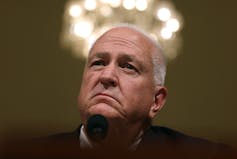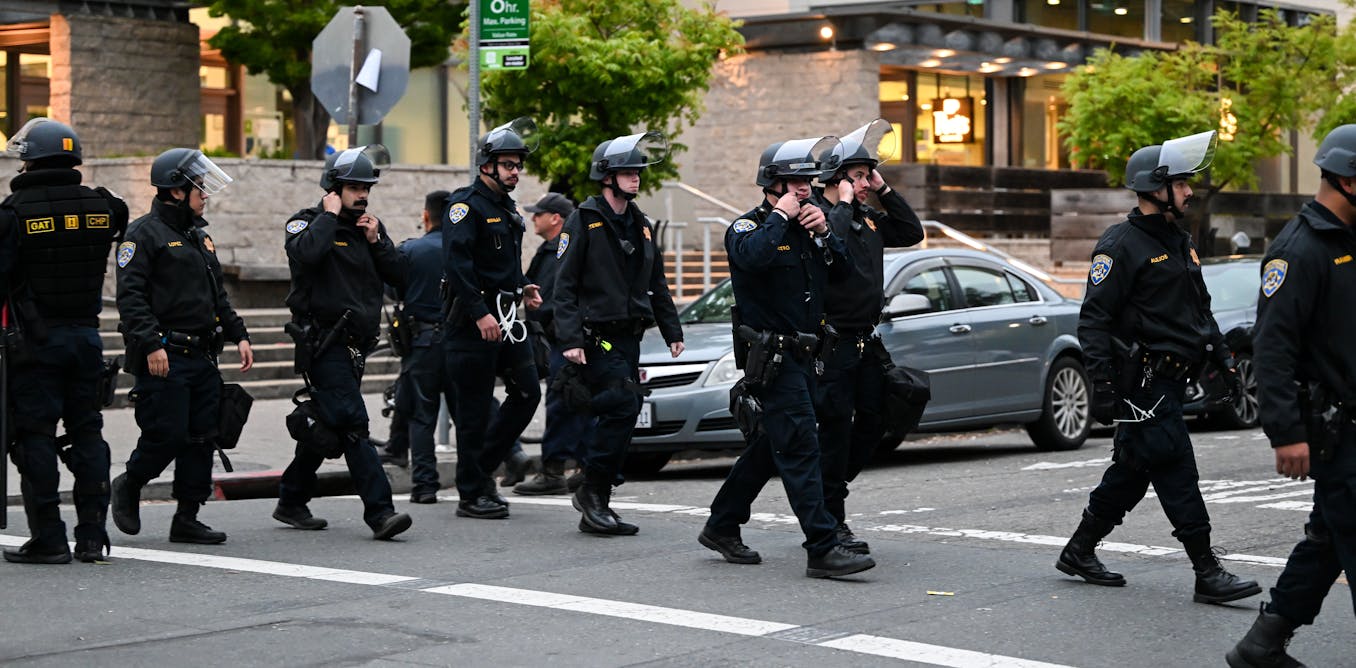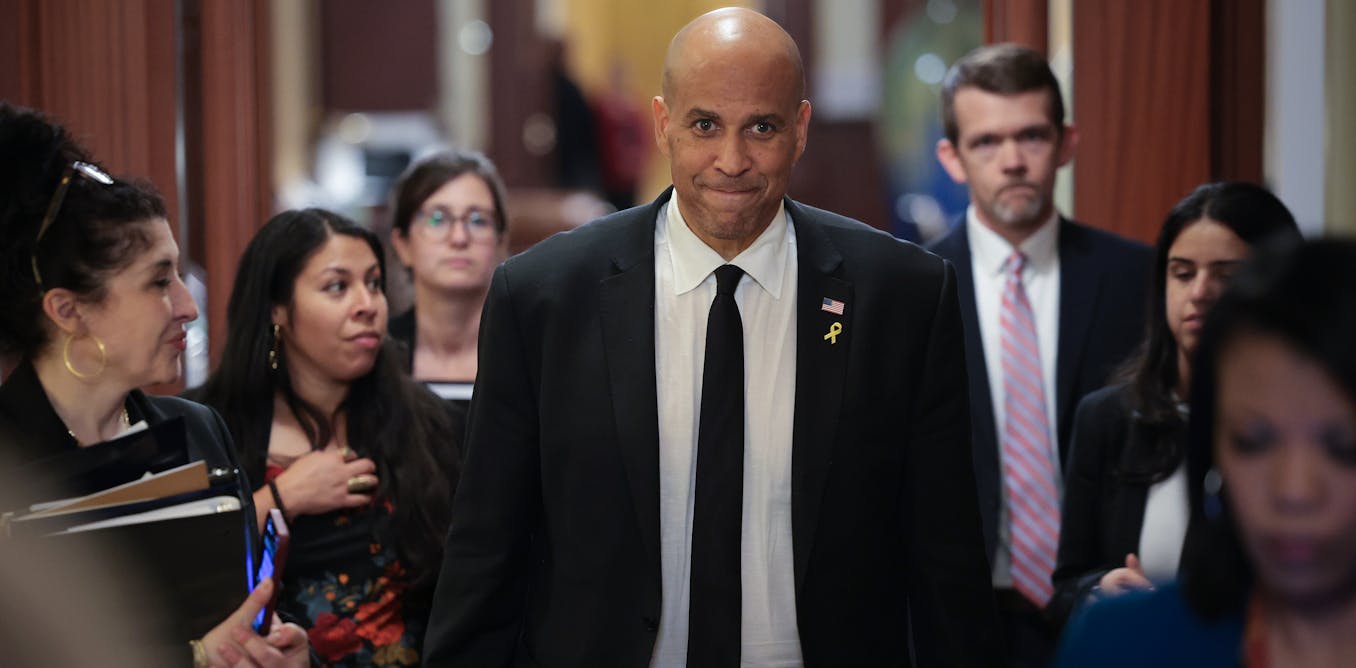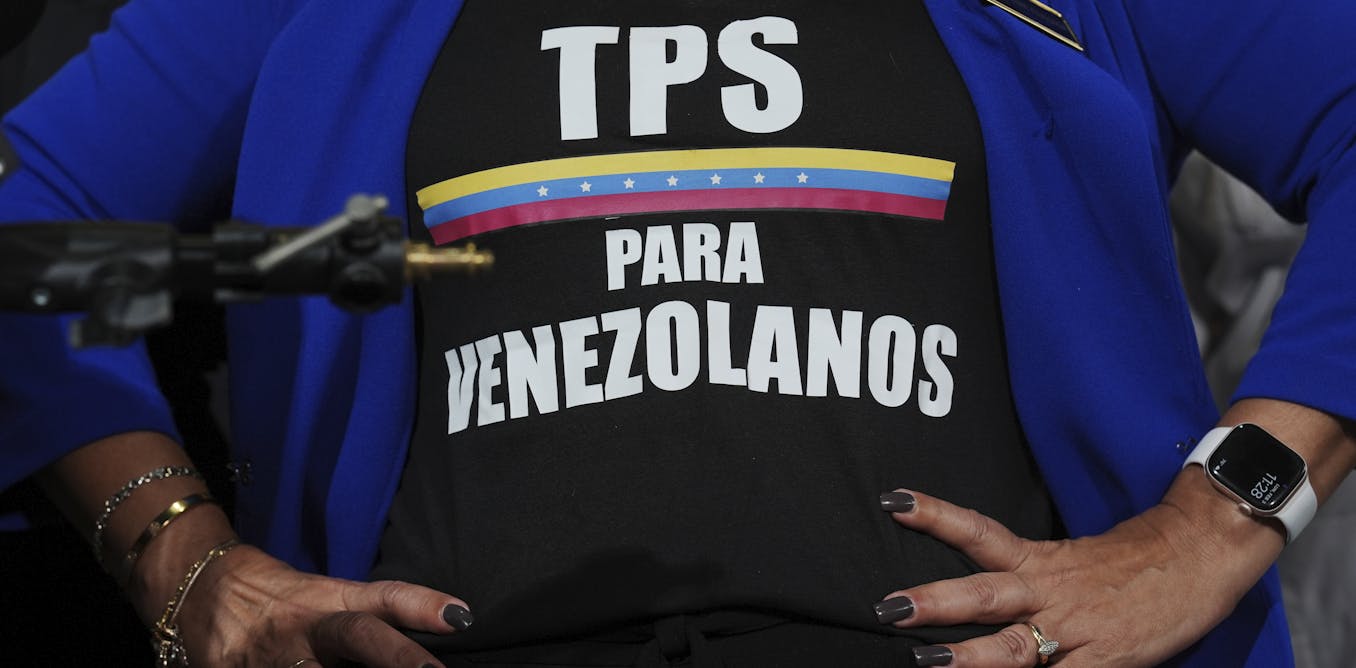Police unions have come under fire following recent police killings of Black Americans. For the most part, the unions work to improve pay and job conditions for police. But some critics say these police union contracts cost cities too much and make it hard to hold officers accountable.
Our new study with fellow Georgia State University researchers adds a troubling finding to this debate: As officers’ pay went up in cities with police unions, more Black Americans died from police actions. This phenomenon didn’t happen for white Americans.
We examined 282 U.S. city police departments from 2000 to 2013. Of these agencies, about 74% permitted collective bargaining.
We found that when officers get paid more, people die at lower rates during police encounters in general. But in cities with police unions, this was true only for white people. As officer salaries increased, the death rate for Black people from police actions also rose slightly.
A question of accountability
Higher salaries can attract more professional officers who avoid reckless behaviors, such as jumping in front of fleeing cars and then using force out of fear of being struck. Instead, they’re likely to use safer strategies, not necessarily out of compassion but to keep their jobs.
Strong job protections from collective bargaining, however, can make some officers less worried about consequences. This might explain why better pay didn’t benefit Black people encountering unionized police forces.
Union agreements often include rules that delay questioning officers after incidents or let disciplinary records be hidden or erased. Even after being terminated, problem officers are often rehired through arbitration.
Aaron P. Bernstein/Getty Images
Such protections undermine accountability and may embolden some officers to use force more readily, especially against Black citizens.
High-profile cases such as George Floyd in Minneapolis and Laquan McDonald and Sonya Massey in Illinois highlight the consequences of officers with troubling records staying on the job.
The officers who killed them had records of misconduct but faced little discipline.
A cycle of violence
Our findings suggest there is also a long history of distrust between law enforcement and Black communities.
Police unions often publicly oppose changes to make policing more open and accountable. This pushback only deepens the mistrust and fear on both sides, raising the risk of aggression and violent confrontations.
Our data also shows that when police pay goes up in unionized settings, so do attacks on officers. This points to a dangerous cycle of violence and community resistance.
As criminologists, including one former cop, we recognize the important role of police unions and the challenges officers face. But our findings suggest that some union protections may be going too far and endangering both Black lives and officers.
Restoring trust
While most police-caused fatalities are considered legal, and less than 0.002% of police-citizen encounters end in death, Black Americans are more likely than other groups to be the victims.
Each death deeply hurts Black communities, perpetuating cycles of grief, anger and distrust in law enforcement. Numerous studies show these deaths stoke a pervasive fear among Black people that they or their loved ones could be the next victim of police violence.
Restoring trust requires, we believe, rethinking union contracts.
While intended to protect officers’ labor rights, union agreements sometimes result in unchecked authority in policing. In our view, governments should pay officers competitive wages and treat them fairly, but also hold them responsible for their actions.
This means making union negotiations public, keeping records of serious misconduct and investigating problems quickly and justly. Police departments should also focus on training officers to do better, not just punishing them after the fact. This training should teach officers how to deescalate, be aware of their own biases and respect different cultures.
Despite differences across jurisdictions, police pay has been rising in most places. In addition, the number of police jobs is increasing. The U.S. Bureau of Labor Statistics predicts a 3% increase in the number of police jobs from 2022 to 2032, from 808,700 to 832,500.
With over half of the nation’s officers in unions and most states allowing collective bargaining, this projection underscores the urgency of improving accountability among union-backed police forces.
Change is coming
As the police workforce grows, and with many officers joining unions, it’s crucial to ensure they’re serving communities properly. The nation cannot just give officers more money and power without making sure they’re wielding it responsibly.
There is some good news. The National Fraternal Order of Police, the nation’s largest police union with 356,000 members, has said it’s ready to talk about reform.

Justin Sullivan/Getty Images
In his 2020 statement before the U.S. Senate Committee on the Judiciary, National Fraternal Order of Police President Patrick Yoes said his group “stands ready to work with anyone, speak with anyone and cooperate with anyone who genuinely wants to work collectively, in a fact-based way, to improve policing in our country.”
States are taking actions too. Legislators in Colorado and Oregon passed laws making it easier to punish abusive officers. Further, new union contracts in cities such as Boston raised police salaries while eliminating officers’ ability to contest disciplinary actions for serious offenses.
Achieving meaningful change while protecting officers’ labor rights requires tough compromises and strong leadership. Reforming police union contracts won’t fix everything. But it’s a crucial step toward cultivating police forces that are more accountable, less deadly and fair to everyone.
It won’t be easy, but we believe it’s necessary to keep communities and police safe.




